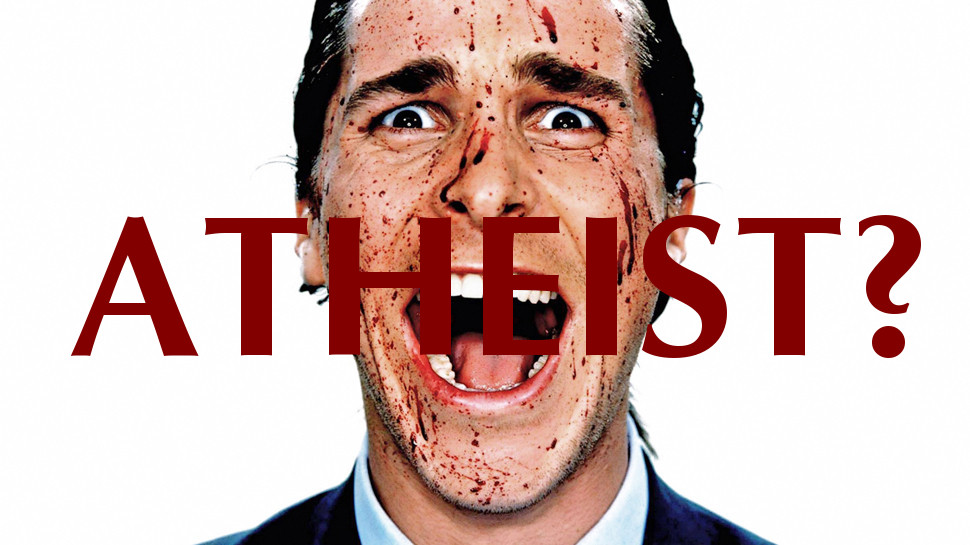
Support more videos like this at patreon.com/rebecca!
Transcript:
Allow me to pose a question to you. A child tortures animals and grows up enjoying hurting people. As an adult, he now has killed five homeless people that he abducted from poor neighborhoods in his home city. Their dismembered bodies are currently buried in his basement. Which is more likely: that he is a teacher? Or that he is a teacher and he doesn’t believe in any gods?
Think it over and get your answer in mind!
That question was posed to more than 1,300 people in 13 different countries on all 5 continents in a new study published in Nature Human Behavior. Another 1,300 people were asked a very similar question, but they were asked if the man was more likely to be a teacher, or a teacher who is religious.
The scientists found that people were much more likely to associate the serial killer with atheism than with religion.
The interesting thing about that question is that it’s a brain teaser. The correct answer in both cases is that it’s more likely the man is a teacher, rather than a teacher who is an atheist OR a teacher who is religious. It’s just simple logic that there are more teachers in the world than there are teachers who are atheists, and there are more teachers in the world than there are teachers who are religious. It’s called the representativeness heuristic, a kind of logical fallacy type of deal where your brain loses track of basic logic because it wants to associate a particular cause with a particular effect. The classic example of this is to describe a woman in her 30s who has dyed hair and hipster glasses and tattoos, she’s registered as a Democrat, and she doesn’t plan to have children. Is it more likely that she’s a teacher, or a teacher and a feminist?
If you have a very strong feeling of what a feminist looks like and acts like, you may be inclined to choose the latter answer despite the fact that when you think about it, it’s obviously wrong. There are far more teachers in the world than teachers who are also feminist. So researchers use the representativeness heuristic to identify people’s biases without them necessarily realizing it.
In the case of the serial killer, people were more likely to think he was an atheist. But what’s even more surprising is that atheists were also more likely to think he was an atheist. Self-hating atheists, anyone?
When reading about this study in the New York Times, I noticed a few problems with the reporting. One was the conflation of “serial killer” with “psychopath” and “sociopath,” something that the author of the study actually does in his interview despite the fact that psychopath and sociopath are never mentioned in the actual study. Not all psychopaths are serial killers, or vice versa. As an atheist, I would be inclined to think that most psychopaths are atheist as well — not because they lack morality but because they are more analytical thinkers who lack the empathy that I think is necessary to fall for religion. That’s a personal opinion of mine, by the way, not science, though there has been some research that suggests it’s true.
But thinking that most psychopaths are atheists doesn’t mean that I think most atheists are psychopaths. (And obviously, I’d still answer the question correctly regardless because I know it’s a trick question.) And I don’t think most serial killers are atheists, simply because I don’t know or even believe that most serial killers kill out of sociopathy.
This problem also comes up in the quote from the study’s author, who says, “We used this psychopathic serial killer because we thought that, even if people didn’t trust atheists enough to let them babysit their children, they wouldn’t necessarily assume them to be serial killers.”
The New York Times then adds, “But they did — overwhelmingly.” But they didn’t! People did show a bias in thinking a serial killer was more likely to be an atheist, but this study did NOT show that anyone would “assume” atheists are serial killers. They assume serial killers are atheists. That’s still a problem of bias, but it’s not a problem as bad as assuming atheists are serial killers. It may sound minor, but in the first example you’re making an assumption about fewer than 200 people from the last 40 years. In the latter example you’re making an assumption about literally hundreds of millions of people.
What we can say is that people, especially those in more religious countries by the way, are probably more likely to think an atheist is a serial killer than a religious believer is a serial killer. The fact that even atheists have that bias shows how deeply ingrained it is. Only time, and increased public recognition of non-murdering atheists, will start to change that.




